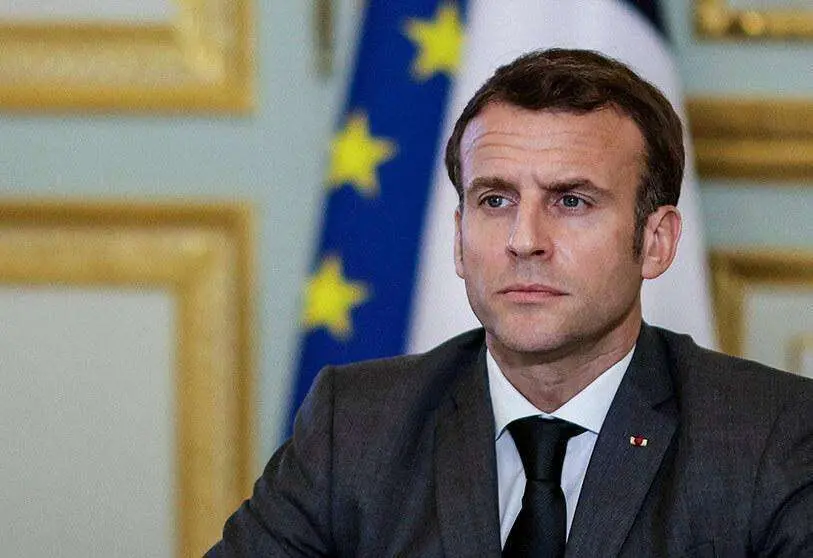Plummeting popularity

A few days ago, French President Emmanuel Macron, during a visit to a gastronomic exhibition in Lyon, had an egg thrown at him from behind while shouting "Long live the revolution". This is the second time he has been violently rebuked in public: last June, a man came up to him as he was greeting people and slapped him hard.
Macron has not had it all his own way. He has had a complicated term in office, punctuated by internal crises and his inability to revive France's relationship with the United States.
The migration issue, the increase in insecurity, the risk of jihadist terrorism combined with the economic and social impact of the pandemic have put the chill on an already punished population.
Before the pandemic, the protests every weekend were a constant, a pulse in the streets against the policies of price adjustments (such as fuel) with the yellow waistcoats leading the clamour against the Elysée.
Now, in the midst of the pandemic, the protests are not letting up either, and this time all kinds of people are mixed together to condemn the obligatory nature of vaccines in certain productive sectors or to carry out certain activities in France; the sanctions - for not doing so - range from temporary suspension from work to suspension of salary.
Macron's current popularity rating hovers around 39%, and he dropped three points in June; he has gone from being a political surprise to a predictable figure.
On the international front, his poor relationship with former US President Donald Trump failed to improve, despite the French leader's efforts to convince the red-haired man of the benefits of the Paris Agreement on climate change and the importance of getting along with transatlantic partners.
The truth is that he was not able to get the better of Trump and his stubbornness. And with President Joe Biden, France has just received its first snub following the Indo-Pacific defence alliance that the White House recently sponsored with Australia, the United Kingdom and the United States (AUKUS), which scuppered the agreement between Australia and France to supply it with 12 submarines worth $56 billion.
The mess has cost a diplomatic crisis between France, Australia and the United States that leaves Macron in a very bad light because he continues to give the image of being constantly ignored by Washington; Trump has already done so several times and, surprisingly, Biden does not take him into account either.
Another who is burning off his popularity, like cigarette smoke, is precisely Biden who entered the White House in January this year with an approval rating of 60% and after several setbacks (and not exactly on the steps of Air Force One) has seen his approval rating fall rapidly and sharply.
What's more, if there were a US election today, Trump would be the winner. After the painful withdrawal of US troops from Afghanistan and the disaster caused days earlier with the Afghan population and allied troops, Biden's approval rating has plummeted to 47.8%.
And I repeat, and falling... because now with the inability to negotiate the 2022 budget, the extension of the spending ceiling and the approval of the trillion-dollar stimulus plan, if the paralysis of the Federal Government comes to pass, the president could end up picking his popularity off the floor.
The Democrats are not doing well and there are already voices that are even beginning to ask, where is the vice-president, Kamala Harris, in the difficult hours to prop up the president?
The one who is leaving with her popularity intact is Angela Merkel, the Chancellor of Germany who, after 16 years in power, has kept her approval rating at 66%, quite an achievement... she is even better rated than all the candidates who ran in the last general election. Merkel's best quality is that she has always tried to be consistent in public and private life and people have perceived her in this way.

